This article delves into the transformative role of collectives in the social sector, with a focus on their impact on individual empowerment. It underlines the importance of individual agency within these structures. It also emphasizes on collectives amplifying individual voices, challenging systemic barriers, and promoting empowerment.
“There is no power for change greater than a community discovering what it cares about.” – Margaret J. Wheatley
This quote highlights that collective power and collaboration can create significant impact, inspire change, and support individuals to achieve their goals and make a difference in the world.
Mobilising the community is the first step towards harnessing collective power and implementing individual empowerment initiatives. It lays the foundation for meaningful and sustainable change by engaging individuals, ensuring their voices are heard, and fostering a sense of common identity. Through this process, individuals realize that their collective power can drive transformative change and uplift lives by building trust, strengthening social bonds, and taking ownership of one’s own circumstances.
Collectives As Platforms Of Empowerment
Collectives offer a platform for people to come together, interact, and work towards shared goals. Through collaboration, members can accomplish something greater than what they could have done individually. A prime example is self-help groups (SHGs). These groups, primarily composed of women in rural areas, pool their resources to provide microcredit loans to members. Thereby strengthening them financially and socially.
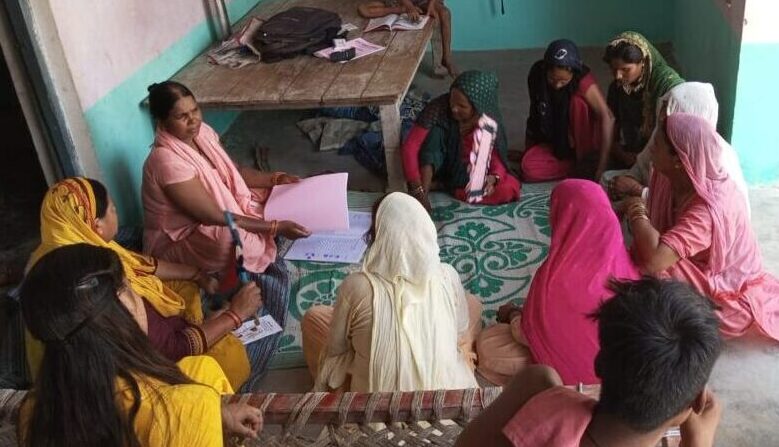

Individuals are strongly influenced by collective knowledge, action, and advocacy. It provides people with an abundance of various viewpoints, information, and experiences that allows them to learn and develop. Collective advocacy enables people to overcome structural obstacles, fight for their rights, and effect societal change. India’s Self-Help Group (SHG) movement has significantly impacted individuals, particularly women. To break free from traditional gender roles, improve economic well-being, and actively participate in decision-making processes at family and community levels. It demonstrates the transformative potential of collectives in people’s lives.
Examples of Successful Collectives by Shramik Bharti
As a fellow working at Shramik Bharti, an NGO that focuses on individual empowerment through collective action, I have seen the transformative power of various initiatives that exemplify the power of collaboration. These include the Self-Help Groups (SHGs), Farmer Producer Organizations (FPOs), and social enterprises focused on water sanitation and hygiene.

1. Self-Help Groups (SHGs)
These groups focus on micro-finance and livelihood activities. Women come together, support each other with financial resources, knowledge, skills, and experiences. The SHGs often become a tool for women to access loans from banks, different kinds of training, and opportunities to develop their enterprises. Here, multiple SHGs have created seven federations over the years and have contributed significantly to the lives of women and their families.

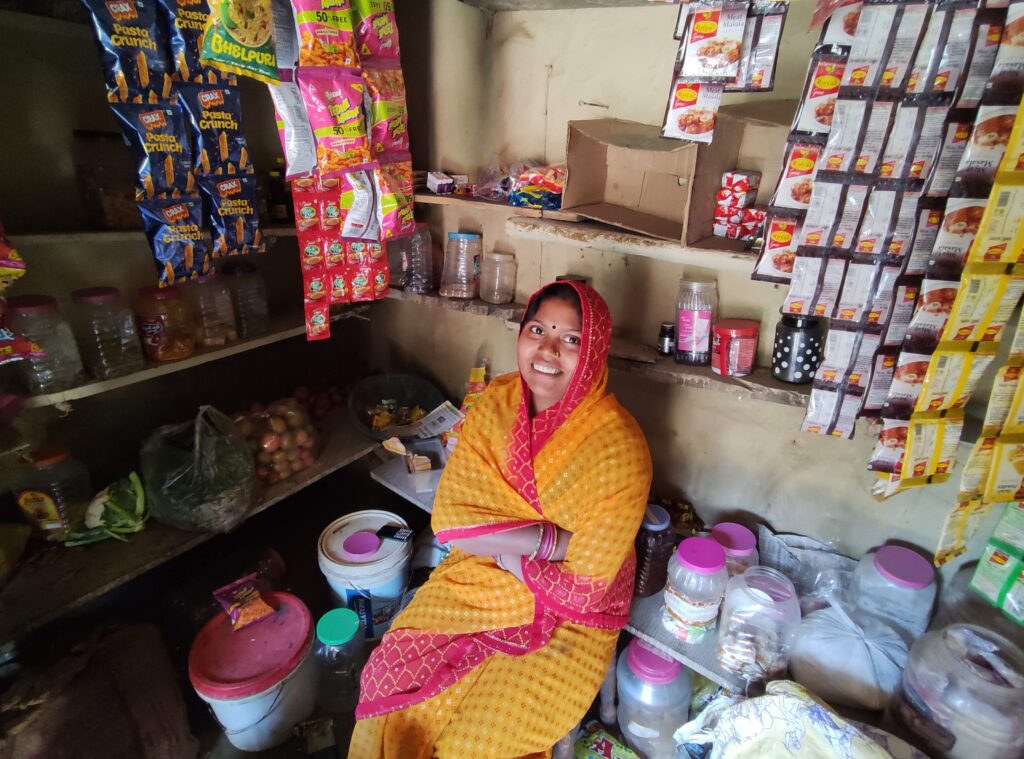
2. Farmer Producer Organizations (FPOs)
By organizing farmers into collectives, FPOs have brought about a remarkable shift in the agricultural landscape. They are able to negotiate better prices, access markets, and adopt sustainable farming practices. Not just that, they even share successful practices as well as equipment with each other which leads to improved agricultural productivity and increased income for farmers. In a collective, they are able to reduce costs and yield higher nutritional value from their produce. The organization has supported women in adapting natural ways of farming as a sustainable agricultural method.
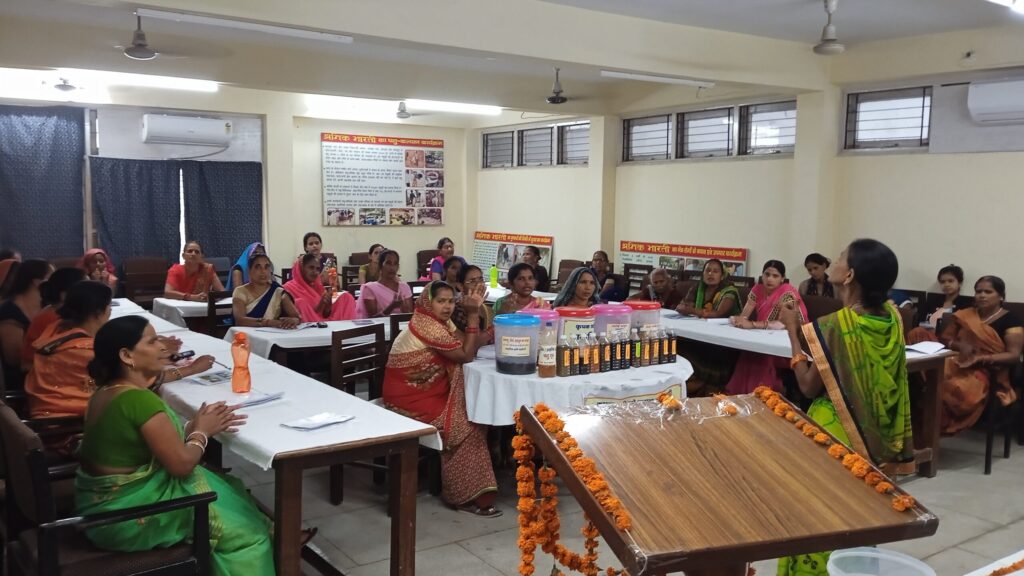
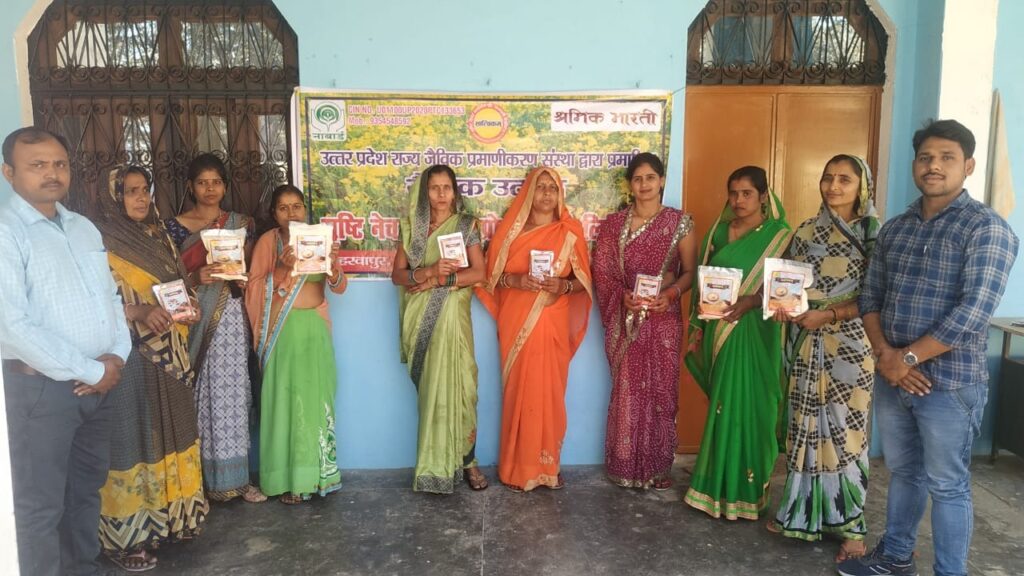
3. Social Enterprises
In the recent past, the team has been directing their efforts to create social enterprises that would cater to the water, sanitation and hygiene related needs of the community. This would include solutions to build, improve, and/or maintain sanitation infrastructure, promoting clean practices, and ensuring safe drinking water. These initiatives not only empower individuals by improving their quality of life but also have a ripple effect, positively impacting public health, education, and overall community well-being. Currently, we are engaged with local community in developing hygiene products such as toilet and floor cleaners.
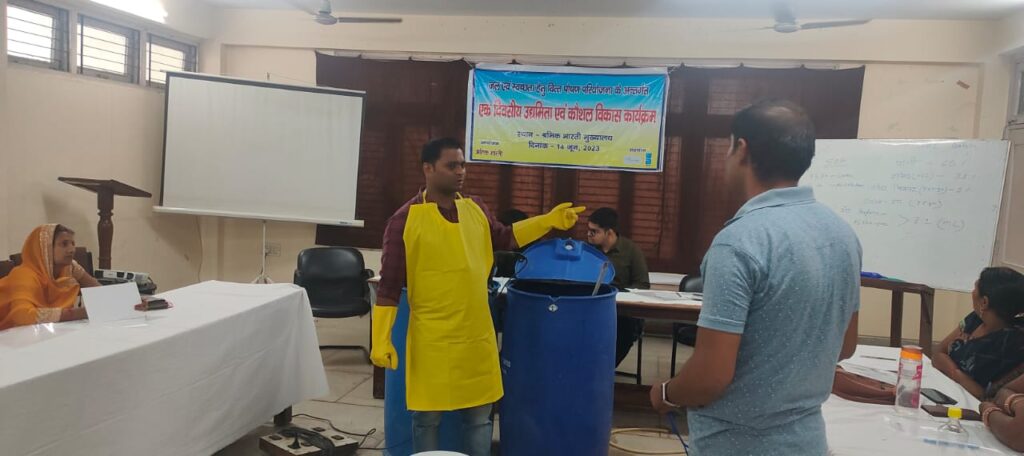
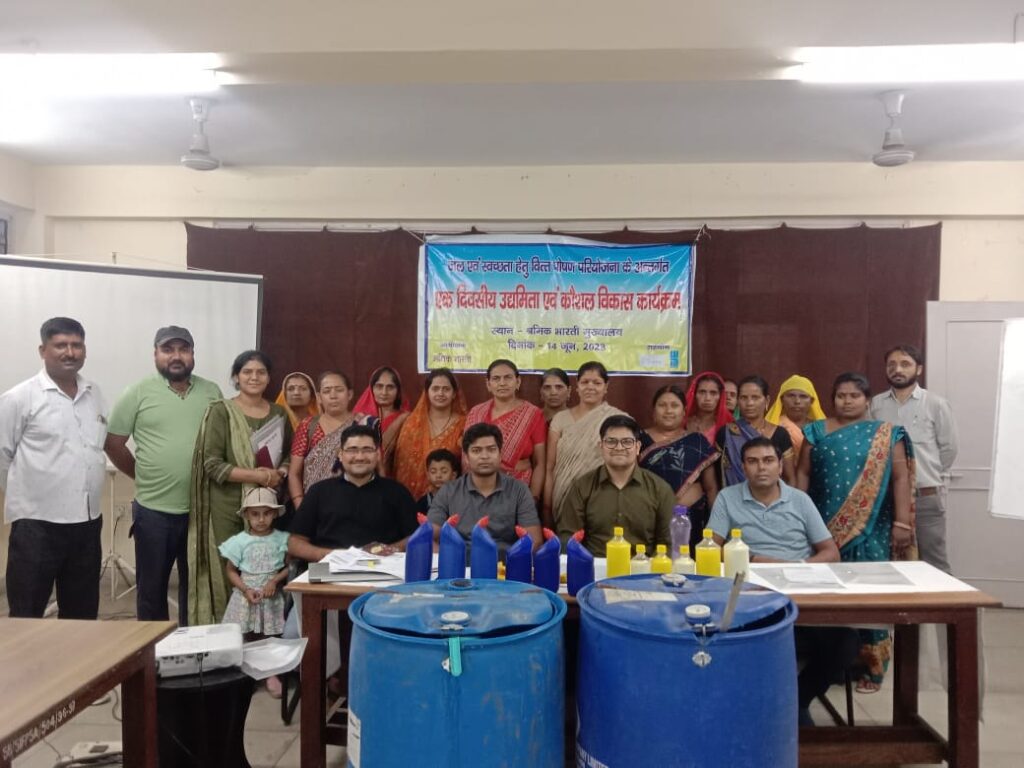
4. Waqt Ki Awaaz
Lastly, our community radio station, ‘Waqt Ki Awaaz’ is of, for and by the local people. It has amplified individual voices to challenge systemic barriers. It also serves as a hub for information dissemination and community engagement, providing valuable resources such as educational programs, health-related information, and ways to access government schemes.
I’ve written about it in detail in one of my previous blog posts here.
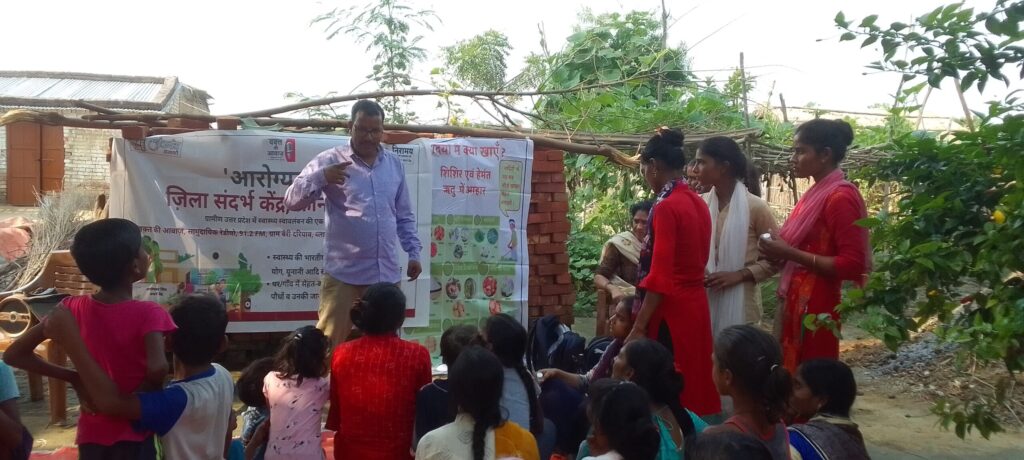

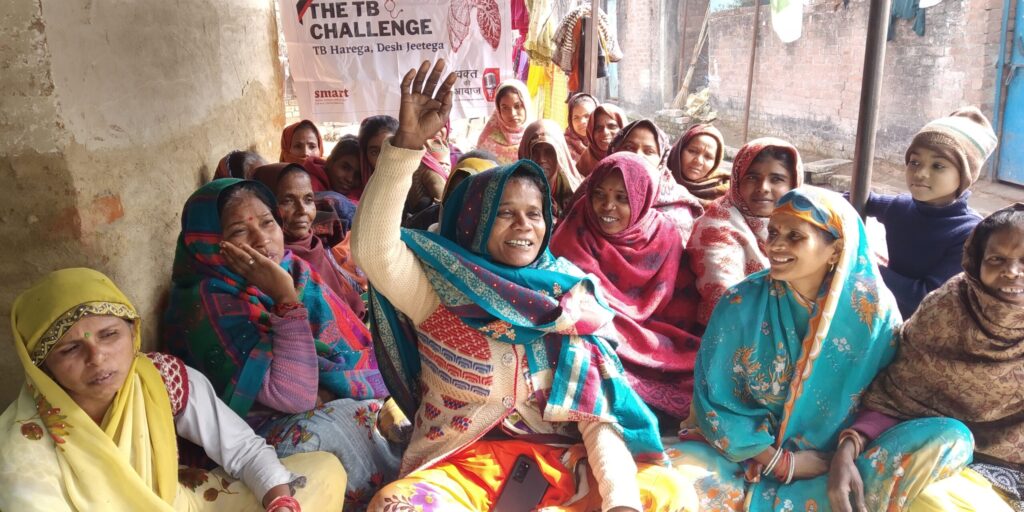
Conclusion
Being a part of a collective provides us with a safe and inclusive space to learn, share experiences, and grow together. It allows us to harness collective knowledge, pool resources, and amplify our impact. I’m a part of an SHG myself, and of a social leadership program’s cohort. A lot can be achieved when people come together with shared purpose. It has provided me a safe and inclusive space to learn and grow. It’s crucial to remember the importance of collaboration and collective action in shaping a better future. Together, we can create a world where every individual is empowered to thrive and contribute to a more inclusive and just society.


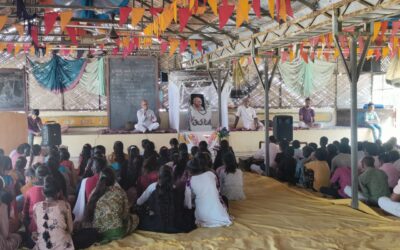
0 Comments